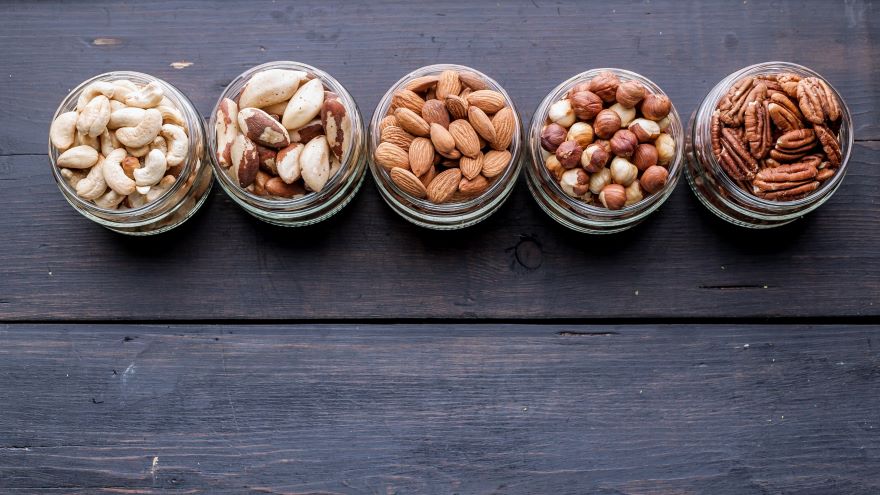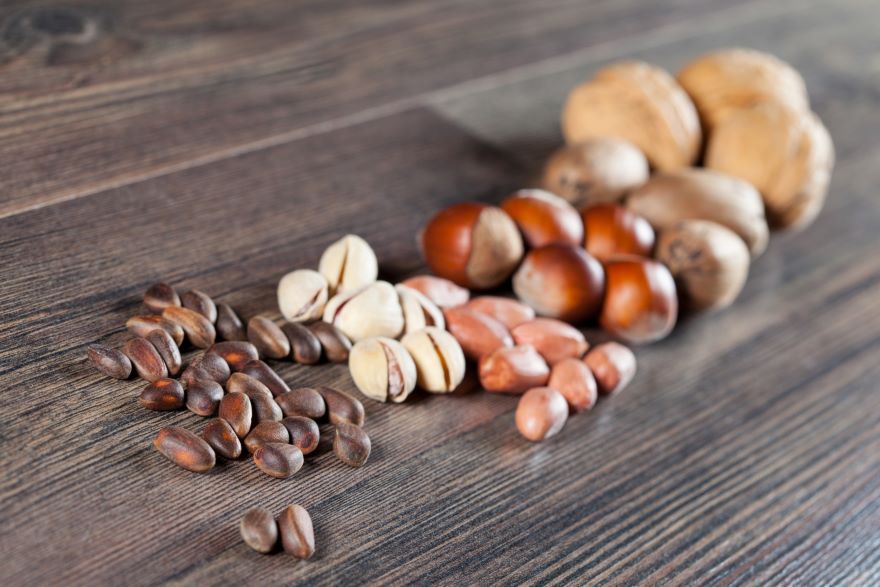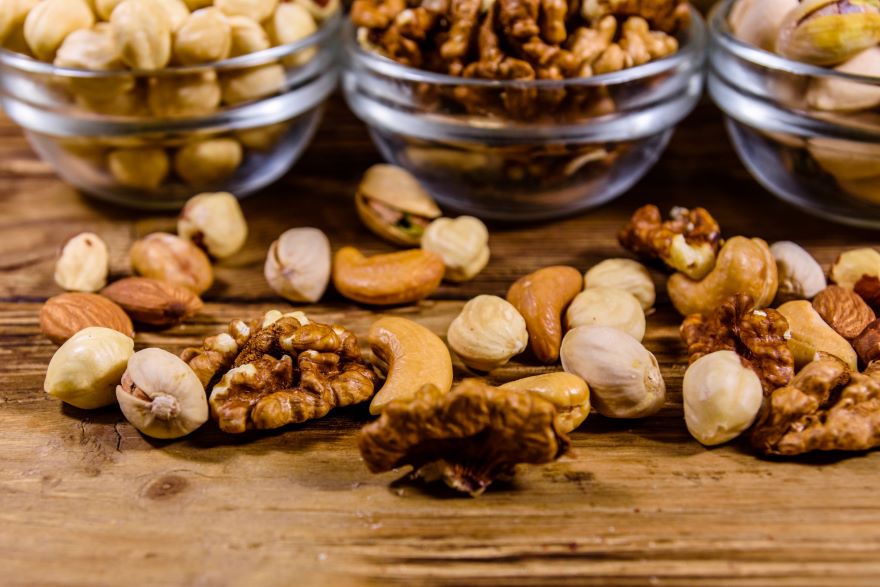As someone who is passionate about healthy eating, I highly recommend incorporating raw nuts into your diet. Not only are they delicious and versatile, but they also offer a wide range of health benefits. In this article, I’ll explain the nutritional value of raw nuts, their health benefits, how to incorporate them into your diet, and tips for choosing and storing them.

Nutritional Value of Raw Nuts
Raw nuts are a great source of healthy fats, protein, fiber, vitamins, and minerals. They are also low in carbohydrates, making them a good option for those following a low-carb or ketogenic diet.
Macronutrient Content
One ounce (28 grams) of raw nuts contains approximately:
- 160-200 calories
- 14-20 grams of fat
- 4-6 grams of protein
- 2-4 grams of carbohydrates
- 2-4 grams of fiber
Micronutrient Content
In addition to their macronutrient content, raw nuts are also rich in micronutrients such as:
- Magnesium
- Copper
- Thiamine
- Manganese
Compared to other nuts, raw nuts vary in their nutritional content. For example, almonds are higher in protein and fiber than cashews, while Brazil nuts are higher in selenium than other nuts. However, all raw nuts offer a range of health benefits and can be a valuable addition to your diet.
Health Benefits of Raw Nuts
In addition to their nutritional value, raw nuts offer a wide range of health benefits. Here are some of the most notable benefits:
Reduced Risk of Chronic Diseases
Raw nuts are high in healthy fats, fiber, and antioxidants, which can help reduce the risk of chronic diseases such as heart disease, diabetes, and cancer. Studies have shown that eating nuts can improve cholesterol levels, reduce inflammation, and lower blood pressure.
Improved Brain Function
Nuts are also good for your brain. They are high in healthy fats, which are important for brain health and cognitive function. In addition, nuts are rich in antioxidants, which can help protect the brain from oxidative stress and inflammation. Several studies have found that eating nuts can improve cognitive function and reduce the risk of age-related cognitive decline.
Weight Management
Despite their high calorie content, nuts can actually help with weight management. This is because they are high in healthy fats, which can help regulate appetite and reduce cravings for unhealthy foods. In addition, the fiber in nuts can increase feelings of fullness and reduce overall calorie intake. Several studies have found that eating nuts can lead to weight loss and improved body composition.
Anti-Inflammatory Properties
Finally, nuts have anti-inflammatory properties, which can help reduce inflammation in the body and prevent chronic diseases. Chronic inflammation is a major contributor to many diseases, including heart disease, diabetes, and cancer. By eating nuts regularly, you can help reduce inflammation and improve your overall health.
Incorporating Raw Nuts into Your Diet
There are many ways to incorporate raw nuts into your diet. One of the simplest ways is to snack on them throughout the day. Keep a small bag of nuts in your purse or backpack for a quick and easy snack on the go. You can also add nuts to meals and recipes, such as salads, oatmeal, or stir-fries. Nuts can also be paired with other healthy foods, such as fruits or vegetables, to create a balanced and satisfying snack or meal. However, it’s important to avoid excessive consumption, as nuts are high in calories and can lead to weight gain if eaten in large quantities.
Choosing and Storing Raw Nuts
When choosing raw nuts, look for high-quality nuts that meet certain standards and certifications. For example, look for nuts that are organic, non-GMO, and free from added sugars or oils. It’s also important to properly store nuts to maintain their freshness and flavor. Store them in an airtight container in a cool, dry place, such as a pantry or refrigerator. Avoid storing nuts in direct sunlight or in a humid environment, as this can cause them to go rancid or spoil.
Risks and Side Effects of Raw Nuts
While raw nuts offer many health benefits, there are also some risks and side effects to be aware of. Here are a few things to keep in mind:
Allergies
Nuts are a common allergen and can cause allergic reactions in some people. If you have a nut allergy, it’s important to avoid eating nuts or products that contain nuts.
High Calorie Content
Nuts are high in calories and can lead to weight gain if eaten in large quantities. It’s important to eat nuts in moderation and watch your portion sizes to avoid consuming too many calories.
Oxalate Content
Some raw nuts, such as almonds and cashews, are high in oxalates, which can contribute to the formation of kidney stones in some people. If you are prone to kidney stones, it’s important to talk to your doctor before adding nuts to your diet.
Conclusion
Raw nuts are a delicious and nutritious addition to any healthy diet. They offer a wide range of health benefits, including reduced risk of chronic diseases, improved brain function, weight management, and anti-inflammatory properties. By incorporating nuts into your diet, you can enjoy their many benefits and support your overall health and well-being. Just be sure to choose high-quality nuts, watch your portion sizes, and store them properly to maintain their freshness and flavor.
FAQs
- Can raw nuts cause allergies? Yes, nuts are a common allergen and can cause allergic reactions in some people. If you have a nut allergy, it’s important to avoid eating nuts or products that contain nuts.
- How many raw nuts should I eat per day? The recommended daily intake of nuts is about 1-2 ounces (28-56 grams) per day, which is roughly a handful. However, this can vary depending on your individual needs and goals.
- Are roasted nuts as healthy as raw nuts? Roasting nuts can alter their nutrient content and may add unhealthy fats or sugars. Raw nuts are generally considered to be the healthiest option.
- Can raw nuts help with weight loss? Yes, they can help with weight loss due to their high levels of protein and fiber, which can help regulate appetite and reduce overall calorie intake.
- Are there any downsides to eating raw nuts? While raw nuts offer many health benefits, they are also high in calories and can lead to weight gain if eaten in large quantities. In addition, some people may be allergic to nuts and should avoid them. It’s also important to choose high-quality nuts and store them properly to avoid spoilage or rancidity. Some raw nuts, such as almonds and cashews, are high in oxalates, which can contribute to the formation of kidney stones in some people. If you are prone to kidney stones, it’s important to talk to your doctor before adding nuts to your diet.
In conclusion, raw nuts are a valuable addition to any healthy diet, providing a range of health benefits and delicious flavor. By incorporating them into your meals and snacks, you can improve your overall health and well-being. Just be sure to choose high-quality nuts, watch your portion sizes, and store them properly to maintain their freshness and flavor. With these tips in mind, you can enjoy the many benefits of raw nuts and support your health for years to come.

Additional Tips for Incorporating Raw Nuts into Your Diet
Here are some additional tips for incorporating raw nuts into your diet:
Use them as a topping
Raw nuts can be a great addition to many dishes as a topping. Try adding them to your oatmeal, yogurt, or smoothie bowl for added crunch and nutrition.
Make your own nut butter
Making your own nut butter is a great way to enjoy the benefits of raw nuts. Simply blend your favorite nuts in a food processor until they form a smooth and creamy texture. You can add a pinch of salt or honey for added flavor.
Try different varieties
There are many different types of raw nuts to choose from, each with its own unique flavor and nutritional profile. Experiment with different varieties to find your favorites and keep things interesting.
Pair them with fruit
Fruit and nuts make a great snack or dessert. Try pairing sliced apples or bananas with almond butter or topping berries with chopped nuts for a delicious and nutritious treat.
Make your own trail mix
Trail mix is a great snack for when you’re on the go. Mix together your favorite raw nuts, dried fruits, and seeds for a healthy and satisfying snack.
Add them to your baked goods
Raw nuts can be a great addition to baked goods such as muffins, bread, and cookies. Try adding chopped nuts to your favorite recipes for added flavor and nutrition.
Final Thoughts
Raw nuts are a delicious and nutritious addition to any healthy diet. They offer a wide range of health benefits, including reduced risk of chronic diseases, improved brain function, weight management, and anti-inflammatory properties. By incorporating raw nuts into your diet, you can enjoy their many benefits and support your overall health and well-being. Just be sure to choose high-quality nuts, watch your portion sizes, and store them properly to maintain their freshness and flavor. With these tips in mind, you can enjoy the many benefits of raw nuts and support your health for years to come.

*We may earn a commission for purchases made using our links. Please see our disclosure to learn more.



